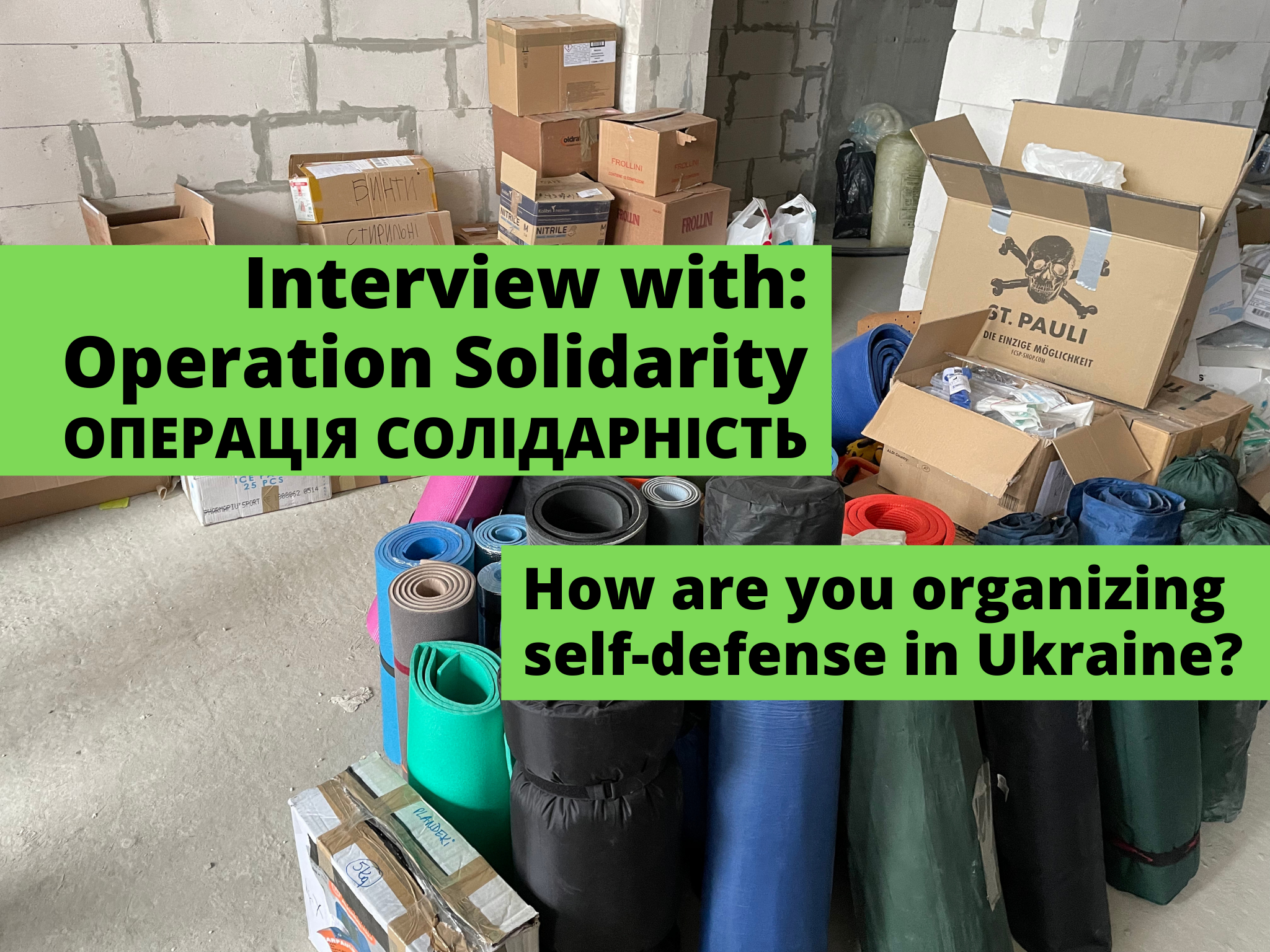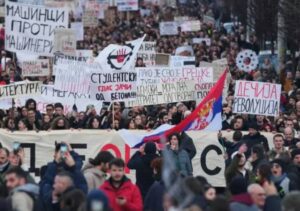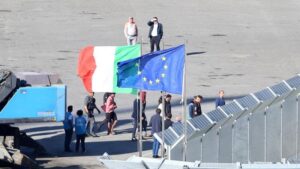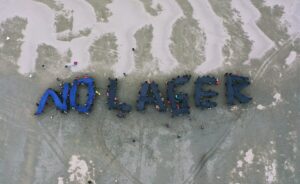This interview was born from the meeting in Lviv between various activists from the ‘Municipi Sociali’ of Bologna with comrades who are organizing self-defense from the Russian invasion in Ukraine. We interviewed Denis to let him tell us what Operation Solidarity is and what it does.
M0: What kind of organisation is Operation Solidarity? What do you do?
D: Operation Solidarity is a network of activists who are providing help for those of the anti-authoritarian left who took up arm to fight the Russian imperialist aggression in Ukraine. We collect donations, buy various tactical equipment, such as bulletproof vests, medical kits and drones for the reconnaissance, as well as organize their transportation to those units where the activists fight. Those activists joined the Territorial Defense forces – volunteer units tasked with defending their home cities and conducting a guerilla attacks on Russian convoys should their positions end up in Russian rear. While some of the activists joined one unit to fight together, others joined different units depending on the place they lived. Operation Solidarity also provides humanitarian aid to the people who have suffered during the war.
M0: What do you think about the war? Can you say something about the self-defence groups and the civil society’s resistance that it is taking form in Ukraine? What do they do?
D: The war is a clear imperialist aggression by the Russian government towards Ukraine. For years, Russian state TV channels spread misinformation almost to the point of hate speech about Ukrainians both at home and abroad to prepare the public for the future invasion. From what we have seen from Russian tactics and their state media, it is most likely that they wanted to overthought the government and install a puppet one instead of it, while also put in jail or straight up murder any activists who they considered to be as potential organizers of resistance. Than the country would likely to be partitioned, some of the territories annexed, and the puppet government would install a police state similar to those that we see in Russia and Belarus. After the Bucha massacre, there is little doubt among Ukrainians that the occupation will result in hellish life for the decades to come.
Most of people in Ukraine understand that, and because of it, they participate in an unprecedented campaign of armed and civil resistance. People track the activity of Russian troops and send the information to the army, burn down military equipment with Molotov cocktails, shoot and poison Russian soldiers, make anti-occupation demonstrations, sabotage the infrastructure used by the Russian army. Those people who joined the Territorial Defense forces managed to successfully repel Russian regular army units in some cities with no or little help from the regular Ukrainian army, and became partisans in those areas, which were overrun by Russian initial advance. While the Territorial Defense forces are under an operational command of Ukrainian army, have a similar structure to the army and can be used as an auxiliary forces by the army commanders. However, their volunteer spirit and the tasks announced – defense of the home region and possible guerilla activity provided a form of resistance to which the anti-authoritarian activists could relate, so the decision made by many was to participate in resistance.
M0: What do you say about Azov and others neonazi self-defence units that are fighting on the Ukrainian front? How do you relate with them as an antifascist solidarity network?
D: Azov is a regiment of National Guard of Ukraine. They were about 1000 men strong (out of 50 000 men in National Guard and more than 300 000 in the regular army and Territorial Defense). As for now they are blocked by the Russian army in the city of Mariupol with a few other Ukrainian army units and it is not clear if they will survive. There is also a force of ex-Azov members who are in other regions of Ukraine, which rejoined the army, as well as other far right, who also took up the arms. While the fact that there are a several thousand far right with arms certainly is a problem, the majority of the armed forces are people with generally democratic believes, and the level of the far right support is quite low – their block of parties received only 2% of the votes in the 2019 election. There probably will be some
rise in nationalistic sympathies in Ukraine due to the war, but overall the majority of the population are supporters of the rights, which are meant to be guaranteed in democratic countries.
M0: How can we and other Europeans support you?
D: We collect donations, which will go to further increase in tactical equipment available to the anti- authoritarian fighters as well as for the humanitarian aid for people who suffered due to the war and occupation. We much appreciate any help you can provide for the refugees who are now in the EU. You can go to https://www.nowar.help/en/ to find a particular way of support.
M0: In Italy, many radical lefties groups who agree on the assumption that Russia has invaded Ukraine, follow the political positioning that can be summed up in the slogan “Neither with Putin, nor with NATO”. As Ukrainian anti-fascists, what do you think about this statement?
D: People from Western Europe (from those countries who were in NATO when the Cold War was going on) were rightfully criticizing the NATO for its imperialist interventions in various countries. However, in the Eastern Europe, it is not so straightforward and I want to give some insights about it. People in Western European countries enjoy life in the countries with no territorial disputes, while there are many of them to the East. For example, some time ago I had visited my relatives in Bulgaria and discovered that they are Bulgarian nationalists. They considered North Macedonia to be a part of Bulgaria and the Macedonians to be Bulgarians that should be reconquered by the Bulgarian army, which has to be increased in size. After hearing that statement from them I cannot blame Macedonians for seeking whatever protection they can get from their more powerful neighbor. Same thing applies to other countries, as we can see another rise in the Serbian nationalism in Bosnia, which can potentially result in another Serbian-Bosnian war, the Baltic States, where people are genuinely afraid of possible Russian invasion, and others. So the ‘NATO expansion’ has slightly different scope in the Eastern Europe, as it is often seen as a way to end old territorial disputes, not so much as some manipulations from the Western powers to enforce their dominance. And the international left community has to consider this in their analysis of the situation if they want to provide alternatives on how to keep Eastern Europe safe.
As for the slogan itself, I can’t understand how it can help in this particular situation. As far as I know, at the time when NATO countries were supplying the Kurdish fighters with weapons against the ISIS and helping them with the aerial strikes, no one used a slogan ‘neither ISIS nor NATO’. Despite of the announced in 2014 sanctions against Russia, meant to decrease its military production, the Western countries continued to sell spare parts for military equipment worth hundreds of millions euros to the Russian military. Meanwhile the aid they have send to Ukraine was mostly symbolic. The Russian fossil fuels were much more valuable for the West than the ‘democratic principles’ the Western countries used to proclaim. Now we see how those policies led to a full-scale war, and the Russian ultimatums and war crimes on the occupied territories give no other choice than to resist. So we ask at least not to block any shipments of weapons to Ukraine, as apparently there is no other way to stop Putin other than to show that his imperial ambitions will result in the destruction of his army.
